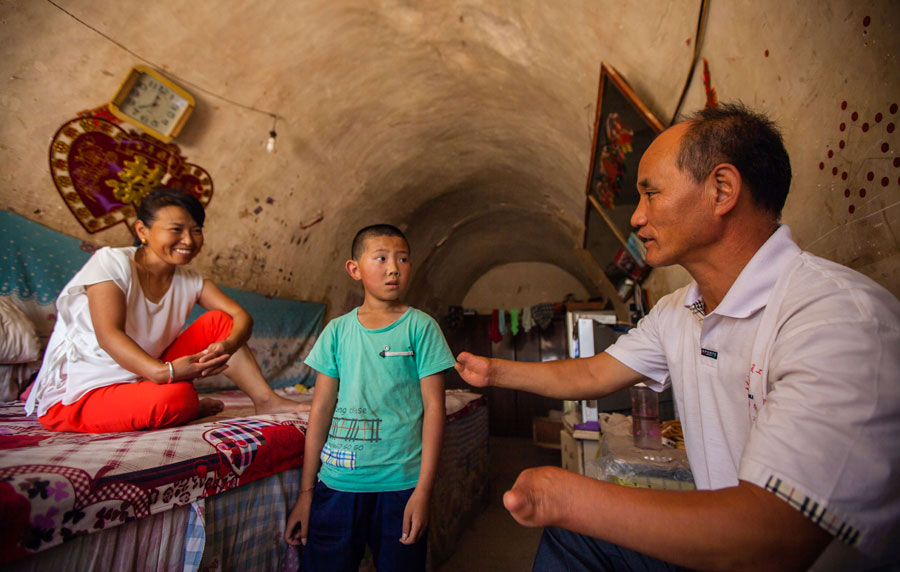Rural teacher in class of his own


The situation at Chen's school is not unusual. As migrant parents take their children with them to cities, fewer students attend village schools. A government report said that more than 60 percent of children ages 6 to 15 were living with their migrant worker parents in 2013.
In the early 2000s, some rural schools closed or merged to improve conditions. Most village children were sent to schools in towns or cities. A few were left in "ghost schools" like Chen's because the journey to a bigger school is too long or prohibitively expensive.
"The quality of education in ghost schools is not as good as in bigger ones, but they are still important. Without them, some students would drop out," Chen said.
Feng Qiangqiang, 11, is the oldest student in the school. His stepfather, a coal miner, is never home, and his mother is chronically ill.
"The family is unable to send him to a better school," Chen said, adding that this is part of the reason he refuses to leave. The educational authorities once transferred him to another school, but he soon returned.
Chen was surprised to be chosen as a role model and delighted to be awarded 5,000 yuan, more than twice his monthly salary.
But the joy was short-lived. He worries he may be the last guardian of his school as the tough conditions scare good teachers off.
"I will keep teaching even if there is only one student left," he said.
Xinhua
- Former Hainan official sentenced in bribery case
- Hangzhou residents enjoy rare snowfall
- Artificial reefs part of successful marine conservation efforts in Guangdong
- Zigong lantern festival combines cultural heritage with advanced technology
- Woman executed for abusing and killing stepdaughter
- Zhangjiakou academy students hit Olympic ski slopes as winter break begins





































